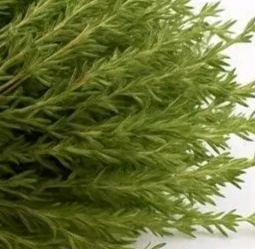Oregano: Nature’s Small but Mighty Healer
Introduction
Oregano is more than a simple kitchen herb — it is a symbol of natural wellness and an ally in both flavor and health. Known for its robust aroma and slightly peppery, earthy taste, oregano has been cherished for thousands of years not only as a culinary favorite but also as a therapeutic herb. Its active compounds, carvacrol and thymol, give it antibacterial, antiviral, antifungal, and anti-inflammatory properties, making it a valuable natural remedy.
Origin
Oregano (Origanum vulgare) is native to the Mediterranean region, where it has been a cornerstone of traditional cuisine and herbal medicine for centuries. Ancient Greeks and Romans used oregano in poultices, teas, and tinctures, believing it could protect health and promote happiness. Its name comes from the Greek words oros (mountain) and ganos (joy), meaning “joy of the mountains.”
Cultural Significance
In Mediterranean cultures, oregano is considered a plant of good fortune and well-being. In Greek weddings, oregano was sometimes placed in bridal bouquets to symbolize joy and protection. In Italian and Middle Eastern kitchens, it became a flavor cornerstone for sauces, meats, and breads. Today, oregano continues to represent a bridge between culinary tradition and natural wellness, reminding us that food can be both nourishing and healing.
Ingredients Quantity
If using oregano for culinary or wellness purposes, here’s a basic guide:
- Dried oregano: 1 teaspoon per 4 servings of a dish (soups, sauces, marinades)
- Fresh oregano: 1 tablespoon, finely chopped (about three times the amount of dried)
- Oregano tea: 1 teaspoon dried oregano (or 1 tablespoon fresh) per cup of hot water
- Oregano oil (therapeutic): 1–2 drops diluted in carrier oil or water (for external use or oral use, follow professional guidance)
Optional Additions
- Garlic and lemon – for extra antimicrobial and immune-boosting benefits
- Olive oil – to make oregano-infused oil for salad dressings or dipping sauces
- Honey – for soothing oregano tea when fighting colds
- Thyme or rosemary – to create a powerful herbal blend for seasoning
Tips for Success
- Drying and Storing: Keep dried oregano in an airtight container away from heat and light to preserve potency.
- Balancing Flavor: Oregano is strong, so start with small amounts and adjust to taste.
- For Tea: Cover your cup while steeping to retain the volatile oils that hold the herb’s healing power.
- For Oil: Always dilute oregano essential oil before applying to skin or ingesting — it’s very potent.
Instructions
- For Cooking:
- Add oregano early in the cooking process to allow its flavors to meld with the dish.
- For fresh oregano, add near the end to retain its bright, herbal note.
- For Tea:
- Bring water to a gentle boil.
- Steep oregano for 5–10 minutes, covered.
- Strain, add honey or lemon if desired, and enjoy warm.
- For Oregano Oil (Topical):
- Dilute 1–2 drops of oregano essential oil in a teaspoon of carrier oil (like coconut or olive oil).
- Apply to the affected area for joint discomfort or as a chest rub for congestion.
Description
Oregano has a bold, peppery, and slightly bitter flavor with earthy undertones that instantly elevates sauces, meats, and soups. In tea, its aroma is warming and slightly minty, producing a comforting, herbal infusion that supports digestion and immunity.
Nutritional Information (per teaspoon dried oregano)
- Calories: ~5
- Vitamin K: 8–10% DV
- Fiber: 0.3 g
- Antioxidants: High levels (flavonoids, phenols)
- Trace amounts of iron, manganese, calcium, and vitamin E
Conclusion
Oregano proves that big benefits can come in small packages. Whether sprinkled on pizza, infused in oil, or steeped into a healing tea, it offers culinary delight and natural support for the body.
Recommendation
Incorporate oregano into your weekly meals for both its flavor and its health benefits. Consider making a simple oregano tea when feeling under the weather or using oregano oil (safely diluted) as part of a natural wellness routine.
Embracing Healthful Indulgence
Healthful indulgence doesn’t have to mean skipping flavor. Oregano is the perfect example of a herb that allows you to savor bold, delicious meals while simultaneously supporting your immune system, gut health, and overall vitality. By using oregano in everyday cooking or self-care, you’re choosing a small yet powerful way to honor your well-being naturally.
Would you like me to include a simple recipe for oregano tea or oregano-infused oil so you can try it at home?

